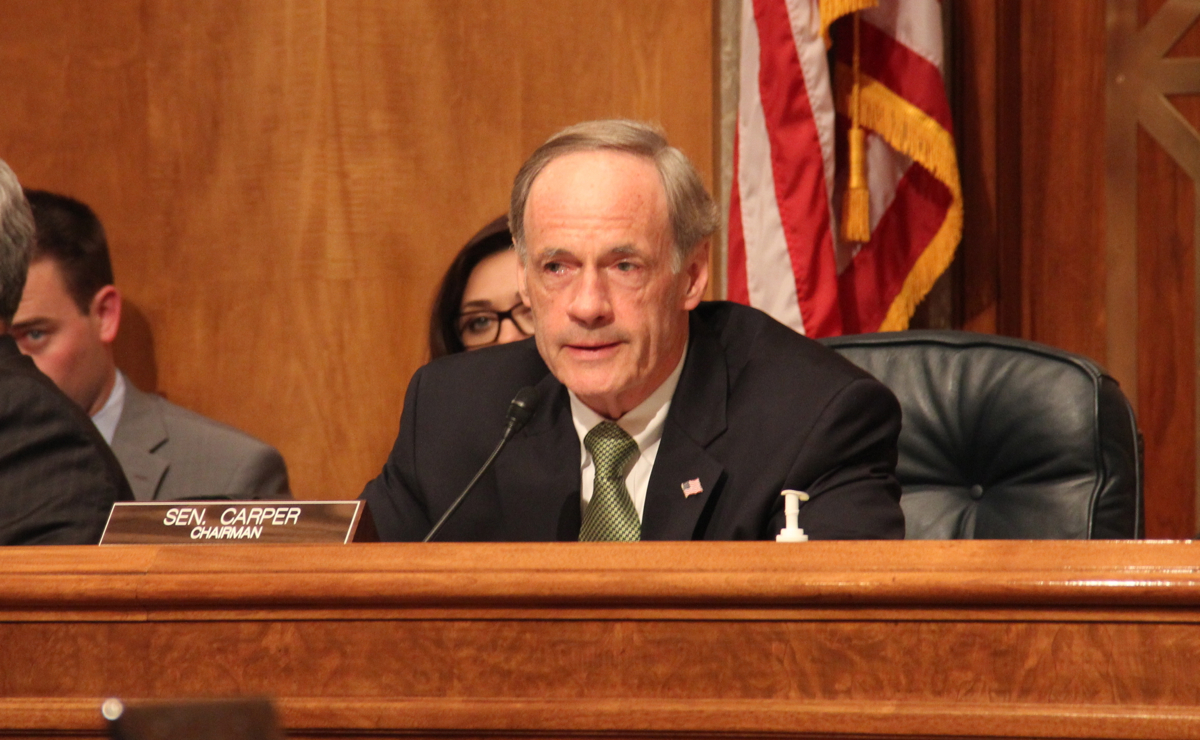WASHINGTON — The FBI needs to change its attitude and be more open to sharing information with other agencies on terrorist threats, members of a key Senate panel said Wednesday.
At a hearing, the Senate Homeland Security and Governmental Affairs called for a review of the intelligence gathered by federal agencies prior to the 2013 Boston Marathon bombings.
Inspectors general from Homeland Security, the Justice Department, the CIA and the Office of National Intelligence outlined the improvements in communication needed within the FBI. The watchdogs said FBI-led joint terrorism task forces need to communicate more clearly and directly with the Homeland Security agency when changes are made in anti-terrorism databases.
They also said the FBI needs to be more proactive in partnering with local and state agencies to share information about suspected terrorists and would-be allies who fall within their jurisdiction.
“There was no silver bullet or one single event that we uncovered that we believe would have prevented these attacks [in Boston],” said Charles McCullough, inspector general of the Intelligence Community in the Office of National Intelligence. “The information was shared here [eventually]. There were some errors and some inaccuracies, but at the end of the day, there’s not a smoking gun that we can say ‘had this happened, that most certainly would have changed the situation here.’ ”
Three people were killed and more than 260 injured in Boston last year when two pressure cookers exploded at the finish line of the Boston Marathon. The attacks led to a four-day long manhunt and ended in Watertown, Mass. Two Kyrgyzstan immigrants, Tamerlan and Dzhokar Tsarnaev, were identified by the FBI as the perpetrators of the April 15 attacks.
With police in pursuit, the eldest brother, Tamerlan Tsarnaev, was killed during a chase on April 19. Dzhokar was found wounded inside a boat in the backyard of a home in the Boston suburb and captured by authorities. A trial date for Tsarnaev is set for November 3.
Questions remain as to whether the intelligence the FBI received on Tamerlan Tsaernev prior to the attacks was shared properly with the CIA.
In March 2011, the FBI received information from the Russian Federal Security Service that Tamerlan and his mother, Zubeidat Tsarnaev, were “radicalists.” The tip alleged Tamerlan might travel to Russia in the near future to become involved with underground extremist groups.
After a three-month investigation in 2011 by the FBI’s Boston Joint Terrorism Task Force, the agency found the Tsaernev family held “no link to terrorism.”
Six months later, the CIA received nearly identical information to the FBI tip provided by Russian intelligence. The CIA forwarded the information to the National Counterterrorism Center, which added Tamerlan Tsaernev to a terrorist watchlist in October 2011.
Inspector General Michael Horowitz of the Justice Department said the FBI has already taken action toward improving communication among federal agencies and task forces, and also at the state and local level.
Horowitz said one of things investigators noted was the failure of the FBI to alert local law enforcement when people who could pose a threat to the community show up on their radar.
He added that the attitude among some in the FBI was that the bureau only gave information to locals officials “on a need-to-know basis.” He said the FBI is addressing that issue now by sending out memos to staff.
The FBI did not immediately respond to phone and email requests seeking comment.
Sen. Kelly Ayotte, R- N.H., said that sending out memos is important, but so is focusing on the attitude the FBI has toward other government agencies.
“Having worked in cases where it’s local, state and sometimes county as well, the attitude we need to get at is the 9/11 attitude of ‘We’re going to hold this information in as the FBI,’” Ayotte said. “As opposed to really realizing that we have all these partnerships of people on the street everyday who can help us, and we can work together.”
The 2014 Boston Marathon took place on April 21 without incident. Committee Chairman Tom Carper, D-Del., said the oversight hearing was called to assure Americans that federal authorities are doing what they can to learn what worked and what didn’t work before and after the attacks in Boston in 2013.
“The thought of homegrown radicalization keeps me up at night,” Carper said.

